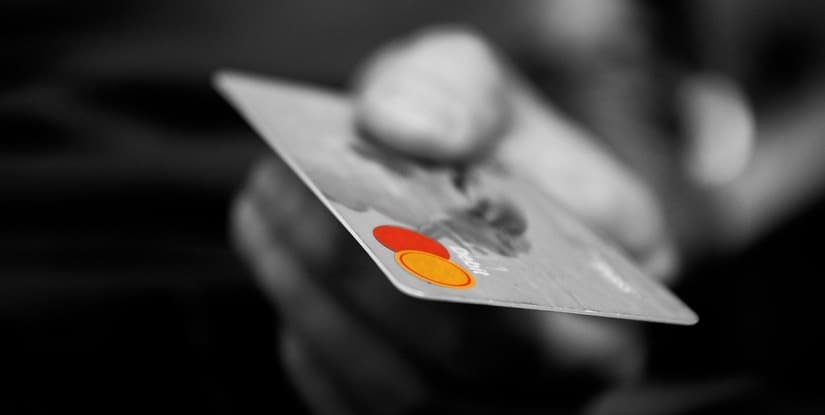Asking which banks accept bitcoin is not a simple question with straightforward answers. Many banks are still resistant to bitcoin. “Capital One is currently declining credit card transactions to purchase cryptocurrency due to the limited mainstream acceptance and the elevated risks of fraud, loss, and volatility inherent in the cryptocurrency market,” a Capital One spokesperson told Breitbart News recently. TD Bank and PNC Bank have also blocked transactions involving cryptocurrencies, as well as, JPMorgan Chase, Bank of America and Citigroup, and Discover have all banned the purchase of bitcoins on their credit cards.
For years, bitcoins (also known as cryptocurrency) have had a wild ride. Ten years ago, no one had ever heard of the term “bitcoin” let alone knew how to use it or whether it would be a reliable, accepted form of currency. Concerns were based on the fact that bitcoins are anonymous and decentralized. Now that more businesses and e-commerce websites are accepting bitcoin, it looks like it won’t be disappearing any time soon.
Why Some Banks Don’t Accept Bitcoin
It should be said that many banks view bitcoin and altcoins as industry disruptors, a potential market anchor, or both. This stems from volatility in the bitcoin market, which gave the banks cover to impose new regulations on bitcoin. This volatility is also what makes bitcoin purchasing by credit card so risky for financial institutions since it is possible that these credit card purchases may not have enough future value to satisfy the repayment requirement.
But that doesn’t mean there are no banks that accept bitcoin, or they haven’t tried to work around this or cash in on the bitcoin buying spree to enable them to accept bitcoin transactions. A recent statement from Coinbase revealed that “…the MCC (merchant category code) for digital currency purchases was changed by a number of the major credit card networks that allow banks and card issuers to charge additional ‘cash advance’ fees—which could be as high as 23.99 percent—and which aren’t charged or collected by Coinbase.” These are separate from the exchange’s transaction fees, which as being charged in conjunction with these fees.
The banks may also be swayed by speculation that the U.S. Congress is considering ways to regulate bitcoin sales. As recently as March 2020, Representative Paul Gosar (R-AZ) introduced the “Crypto-Currency Act of 2020,” a bill that looks to “provide not only clarity but legitimacy to crypto assets in the United States,” a rep from Gosar’s office told the website, Cointelegraph.
Bucking the Trend
Despite all the rumors and stereotypes that cryptocurrencies are a threat to banks, the number of bitcoin-friendly banks is growing, enabling people to buy BTC with a bank account as a method of payment. The number of banks which accept bitcoin is slowly increasing. The banks that have declared bitcoin a “no-go” represent 69.2 percent of the American credit card market. While this represents an overwhelming front of the opposition, there are still options available for those who wish to use credit cards for altcoin purchasing.
While the major banks in the U.S., the United Kingdom, and Australia have all signed on to banning credit card purchases for altcoins, The National Bank of Canada still allows bitcoin purchases. Additionally, many of the smaller banks and the online-based banks are actively supporting altcoin credit card purchases. Some, like Simple Bank, are taking things a step further and allowing commingling of exchange and wallet features.
A word of caution: It should be said, though, that even if a bank allows you to purchase altcoins with a credit card, it is advisable not to do so. Credit card purchases on securities usually incur a transaction fee, which effectively raises the final price of the securities. This makes it harder to get a favorable return-on-investment for said securities and, if the credit card purchase is in fact a loan for funds not currently held, makes it harder to pay off the securities. It is advisable that—if possible—a debit card transaction or bank transfer is used to make altcoin purchases.
The Current (and Future) State of Banks and Bitcoins
Blockchain technology is already used in several areas within financial services, including international payments. Now, some U.S. banks are creating their own blockchain-based systems, including digital currencies, to enable B2B cryptocurrency payments between their customers. Proponents say the potential benefits include reduced transaction fees and faster money transfers. Japanese banks are also creating payment systems based on digital currencies.
Some banks do allow purchases on debit cards and banks are continuing to look into options such as Digital Asset Receipts (DAR) that would provide a layer of insurance, protection, and monitoring with regard to bitcoin transactions. At the time of this writing, the future of DAR is still uncertain.
Below are our lists of banks that have explicitly stated whether they would accept or reject altcoin credit card purchases. The non-inclusion of a bank from this list does not mean that the bank supports or rejects credit card purchasing; it should only be read that verifiable information about that bank’s motivations could not be found at the time of article publication. The lists are accurate as of March 2020 and subject to updates as more information becomes available.
Banks That Accept Bitcoin
| Name | Country | Note |
|---|---|---|
| Chime Bank | United States | Founded in 2013 by entrepreneurs Chris Britt and Ryan King, Chime Bank is headquartered in San Francisco, California. The company offers no monthly fees, no overdraft fees, no minimum balance fees, and over 38,000+ ATM locations including CVS, Walgreens, and 7-Eleven stores. With Chime Bank, you receive your direct deposit payments as soon as they are processed. The mobile app is easy to use, so finding an ATM is painless and they also have a feature for mailing out checks on your behalf right from the interface itself. The official statement from Chime is that bitcoin purchases are not allowed with their VISA debit card, however, you can utilize a platform such as Paxful and use their escrow system to move money to pay friends directly with their username, phone number or email. |
| Wirex | United Kingdom | Founded in 2014, Wirex is a London-based company that allows customers to open a crypto-friendly business account. The Wirex app can be accessed on both iOS and Android devices. Wirex offers the first-ever FCA-licenced, crypto-friendly business account that is secured with multi-signature cold storage. Wirex makes it easy to own both cryptocurrency and fiat dollars under one smart and simplified account. Within the Wirex app, you can seamlessly buy, store and exchange digital and traditional currencies anytime. Customers can fund their accounts using a debit or credit card, bank transfer or crypto. Wirex can also be linked to a third-party service such as Curve, Revolut, or Paypal. Customers can exchange between currencies at any time. |
| Ally | United States | Ally Bank is one of the most Bitcoin-friendly banks. Ally is an online-only bank, meaning it has no brick-and-mortar locations. But they have 24/7 support as well as an online chat feature that has very short wait times (usually 2-5mins). You can easily link your bank account to Coinbase and buy desired coins with your debit card. You can also try buying crypto with your credit cards, as Ally hasn’t announced they are against it, but then you will end up paying the fees. This bank has really attractive plans to start your banking with them and there are positive reviews from their clients who also purchased coins and had no issues. |
| Fidor Bank | Germany | Fidor has noted that it will team up with Kraken to operate a fully functioning altcoin bank. |
| Change | Estonia | Change, a crowd-funded blockchain project (ICO), is seeking to make banking functions available to altcoin users. The company is doing this by offering a wallet for the storage of altcoins, providing an altcoin spending card, and offering a marketplace that will aggregate the best investment and insurance opportunities and onboarding them on a single platform. |
| Worldcore | Czech Republic | Worldcore provides multi-currency accounts that can be accessed via debit and virtual cards. The leading bank in the Czech Republic, its PayAnyCard can be loaded with altcoins to make digital currency spending a simple matter. |
| Bankera | United Kingdom | The operational arm of SpectroCoin, Bankera seeks to be a fully-functional bank that offers payment accounts, interbank foreign exchange rates, debit cards, lending—allowing altcoins as collateral—and payment processing. |
| USAA | United States | USAA allows Coinbase users to check their bitcoin balances from their apps and have invested in the exchange. This marks the first major bank to invest in an exchange. |
| Goldman Sachs | United States | Goldman Sachs launched an altcoin trading desk and offers altcoin products since 2018. |
| Revolut | United Kingdom | You can receive cryptocurrency interests sent by another Revolut user. However, you will not be able to receive cryptocurrencies sent from outside of the Revolut platform, eg. external wallets. This is something we are working to improve upon, and we hope will be available in the future. This is a closed offering whereby you can buy, sell, exchange, and transfer within the Revolut platform. |
| National Bank of Canada | Canada | See TDB. |
| Simple Bank | United States | Simple Bank collaborates with most bitcoin exchanges and permits direct buy-sell transactions for bitcoin. |
Banks That Explicitly Ban or Limit Bitcoin Purchasing
| Name | Country | Note |
|---|---|---|
| Bank of America | United States | Bank-issued credit cards and lines of credit can no longer be used to buy bitcoin or any other altcoin. Depositors can still use their debit cards or bank transfers for purchases, though. |
| Chase | United States | See Bank of America |
| Citigroup | United States | See Bank of America |
| Lloyds Bank | United Kingdom | See Bank of America |
| Halifax UK | United Kingdom | See Bank of America |
| Bank of Scotland | United Kingdom | See Bank of America |
| MBNA | United Kingdom | See Bank of America |
| Wells Fargo | United States | Wells Fargo has been named a defendant in a lawsuit where it was alleged that the bank sought to block transfer wires to bitcoin exchange Bitfinex. |
| Commonwealth Bank of Australia | Australia | The Commonwealth Bank of Australia has held that it can refuse any international money transfer that is meant for facilitating payments with bitcoin or any other altcoin. However, the bank insists that lawful use of bitcoin is permitted—as long as the use complies with the bank’s terms and conditions. |
| CitiBank | United States | See Bank of America |
| Capital One | United States | See Bank of America |
| Discover Bank | United States | See Bank of America. The inclusion of Discover means that all five of America’s largest card issuers and six of the top 10 have altcoin bans. |
| Virgin Money | United Kingdom | “Following a review of our policies, I can confirm customers will no longer be able to use their Virgin Money credit card to purchase cryptocurrencies,” a spokesman for Virgin Money told Reuters. “This only applies to our credit cards and not our debit card.” |
| Visa | European Union | Via its subsidiary Wavecrest, Visa ended the use of its payment network as the backing of European-issued prepaid altcoin cards, such as Bitwala, Tenx, Bitpay, and Xapo. Cards that convert bitcoin into fiat currencies will not be affected. |
| TD Bank | United States | Customers have reported that TD Bank has iterated that its policy is not to associate with bitcoin or to permit its subscribers to engage in the said business. The bank has been accused of stopping bitcoin purchasing transactions and closing accounts suspected to be linked to bitcoin. |
| PNC Bank | United States | See TD Bank. |
| Royal Bank of Canada | Canada | See TDB. “We recognize that regulatory, risk and other external environmental factors relating to cryptocurrency continues to evolve,” RBC spokesman AJ Goodman said to Bloomberg. “As such, we continue to review our policies to consider how we can best support clients.”’ |
| Toronto-Dominion Bank (TDB) | Canada | Despite moves to the contrary from American banks, Canada’s largest banks are supporting altcoin credit card purchases—as long as the purchase is accepted by Mastercard, Visa, Visa debit, or Interac. This may change shortly, however. |
Now that you’re clear on which banks accept bitcoin, get started making the most of your Crypto.






